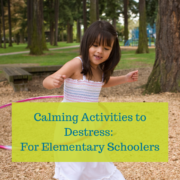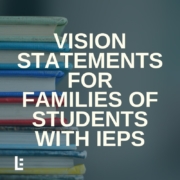How to Discuss Current Events: Elementary School

To be quite honest, the news these days can be downright scary. Even for adults, the nightly news and breaking headlines have the potential to shift our entire mood and sense of security. If this is the case for a grown adult, what might a child think about the current events that splash across the screen? As impossible as it may seem, there are strategies that parents can employ to help their families navigate the current climate.
For young elementary schoolers, about age 6 and under, the negative news stories have very little to offer that can benefit young, impressionable minds. For the most part, unless the story is an inspirational piece, perhaps involving people overcoming obstacles, the younger kids should be shielded from the news.
If your child happens to hear, see, or come across the news during your absence, perhaps at school or a friend’s house, be open about answering their questions. Don’t discourage or downplay any concerns they might have by shutting down the conversation or glossing over their worries.
If they have already heard some troubling news, shift the conversation to a more positive route by providing reassurance that your family is not in danger. However, if the news happens to hit close to home, talk about how to stay safe and secure. Provide them with reassuring information about how to handle different emergency situations–severe weather, fire, separation in a public place, etc.
For the young ones, especially, wrap the conversation up by shifting to a happy, cheerful topic. Perhaps you read a silly book together or watch your favorite family show. The point is to move the conversation and potential negative thoughts out and replace them with more pleasant things.
For older elementary schoolers, it is likely that they will be exposed to more information, current events, and political topics. While you cannot shield them from everything, you should be careful to consider their level of maturity and sensitivity when allowing them to watch or search certain news topics. Parents should be especially careful to limit or filter information about news or events that relate to their child’s age group. For example, school violence or teen suicide are topics that hit way too close to home for older elementary schoolers. The more they can relate to the news story, the more traumatic or frightening it can be for children.
Consider setting filters and restrictions on certain channels or websites. Be open with your children about why certain material may be inappropriate. Emphasize that this is not about distrust or a punishment in any way, but an effort to do what is best for them emotionally. Again, respect what questions they may have, but be sure to highlight the good news going on in the world around them.
Be cognizant of your own opinions, as these are likely to become your child’s opinions. The trust and reliance that a child has in their parent’s point of view is undeniable. Children truly do absorb everything around them—including the belief systems that you voice in and out of the home.
Be careful when making statements that lump groups of people together, create a divide among certain groups, or portray others in a negative light. Phrases like “they always…” or “we would never…” are sweeping generalizations that can slowly mold your child’s beliefs about entire groups of people.
By meeting your children where they are, developmentally and emotionally, and keeping the lines of communication open, you can help them navigate the news they hear and come to terms with the world around them.







